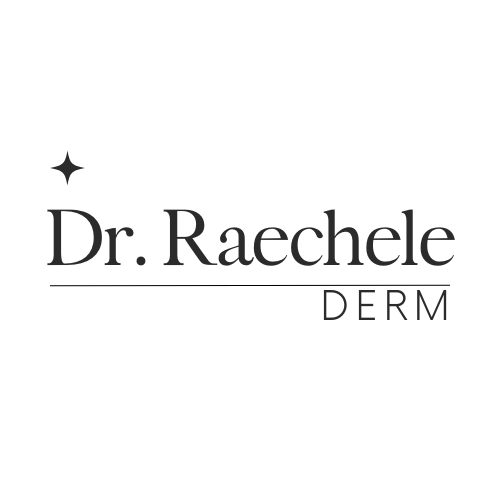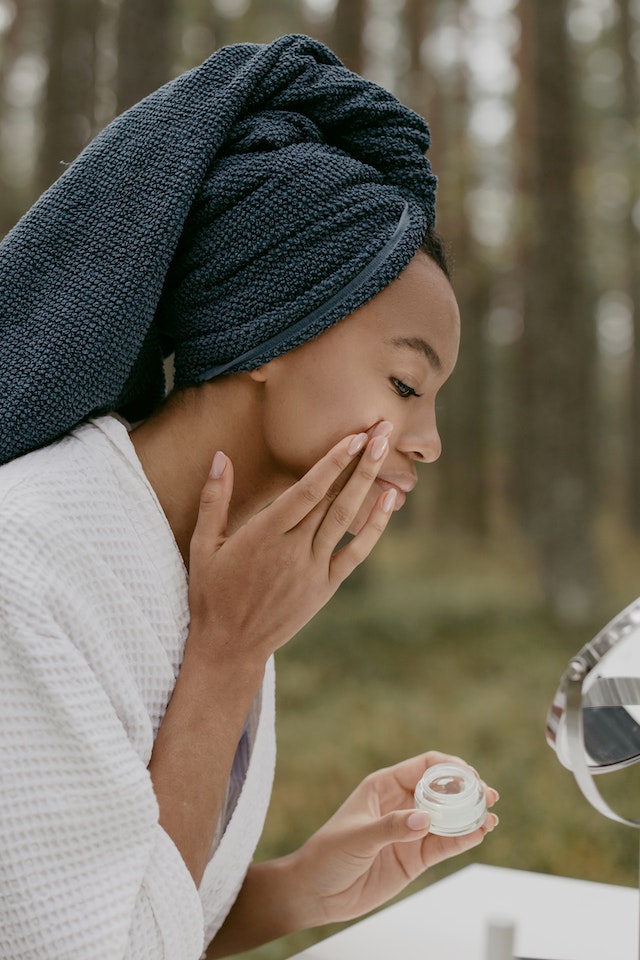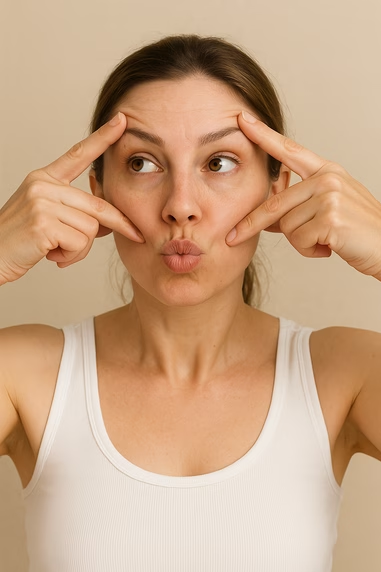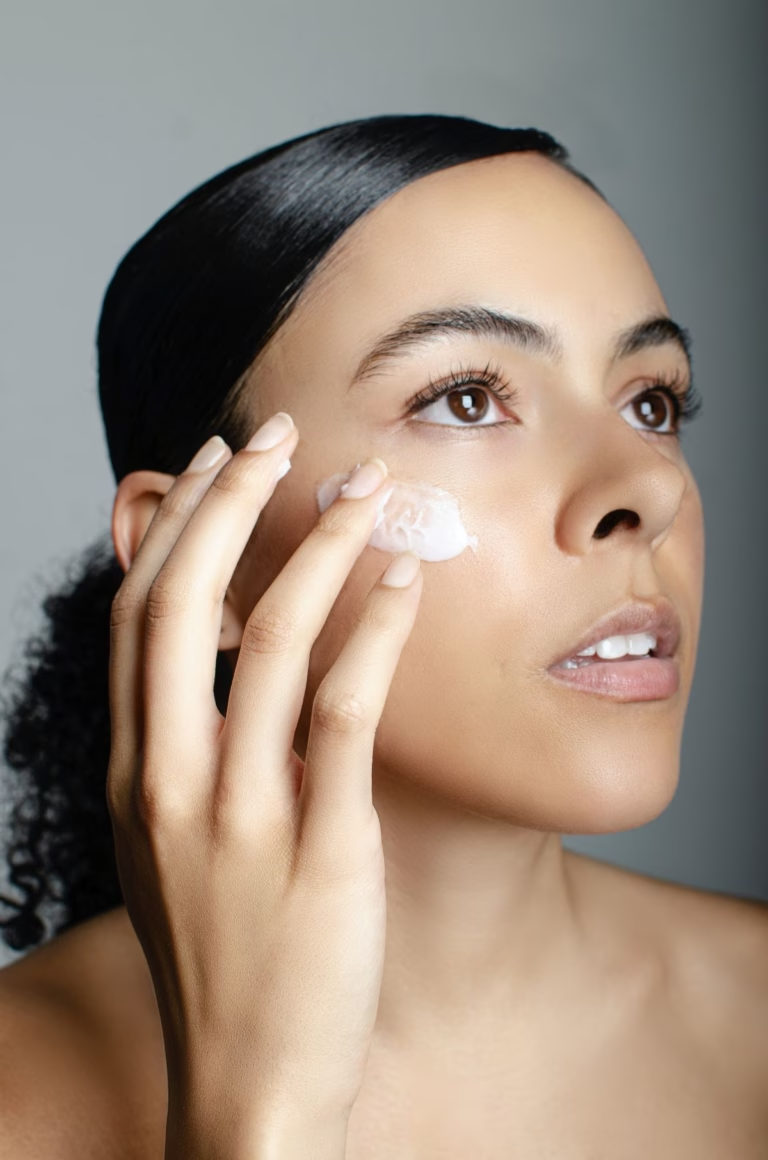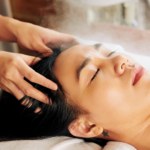Acne is one of the most common skin concerns that people face, yet it can feel like a mystery to pinpoint why your face is breaking out. As a board-certified dermatologist, I’ve helped countless patients identify the root causes of their acne and develop personalized treatments to address it. If you’ve ever asked yourself, “Why is my face breaking out?” you’re not alone. We’ll dive into the top reasons why you might be breaking out, how to address each cause, and actionable steps to reclaim clear, healthy skin.
If you’re looking for a discussion about the top reasons why your face is breaking out—be sure to check out my video here:
🌿 Watch & Learn:
I’ve put together a quick, easy-to-follow video if you’d like a deeper dive into this topic.
✨ You’ll also find new weekly tips on stress-free skincare, hair wellness, and simple, science-backed beauty — don’t forget to subscribe here!
Understanding Acne: Why Is My Face Breaking Out?
Acne develops when your pores become clogged with oil, dead skin cells, or bacteria. This triggers inflammation, leading to pimples, blackheads, and cysts. Hormonal fluctuations, lifestyle habits, and environmental factors can all play a role. But why is your face breaking out in particular? Let’s explore.
Top 7 Reasons Your Face is Breaking Out
1. Clogged Pores from Products
Not all skincare and makeup products are created equal. Using comedogenic products—those that block pores—can lead to breakouts. Additionally, failing to remove makeup completely at night can leave residue that triggers acne.
What to Do:
- Look for non-comedogenic and fragrance-free products.
- Practice double cleansing by starting with an oil-based cleanser, followed by a water-based one to remove all impurities.
- Wash makeup brushes weekly to reduce bacteria buildup.
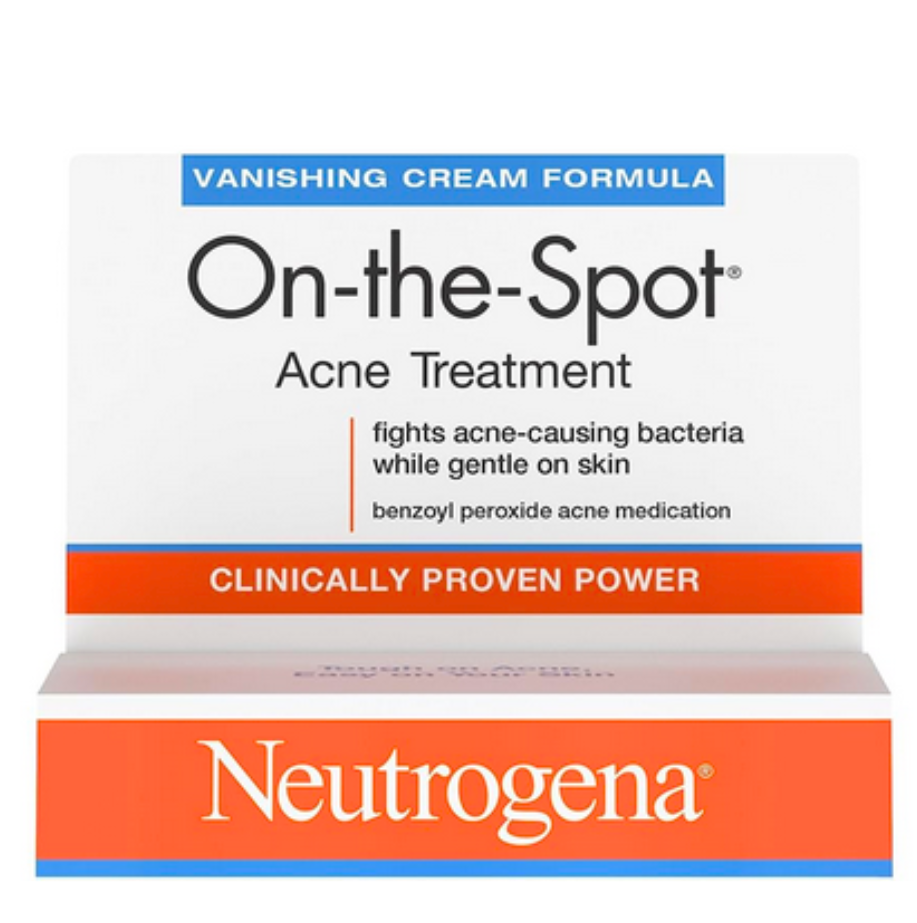
2. Hormonal Fluctuations: A Major Reason Why Your Face May Be Breaking Out
Hormonal changes, especially during menstruation, pregnancy, or puberty, can increase sebum production (your skin’s natural oil). This extra oil can clog pores, causing breakouts—particularly along the jawline and chin.
What to Do:
- Consult with a dermatologist about topical or oral medications, like retinoids or hormonal treatments.
- Maintain a consistent skincare routine, even during hormonal fluctuations.
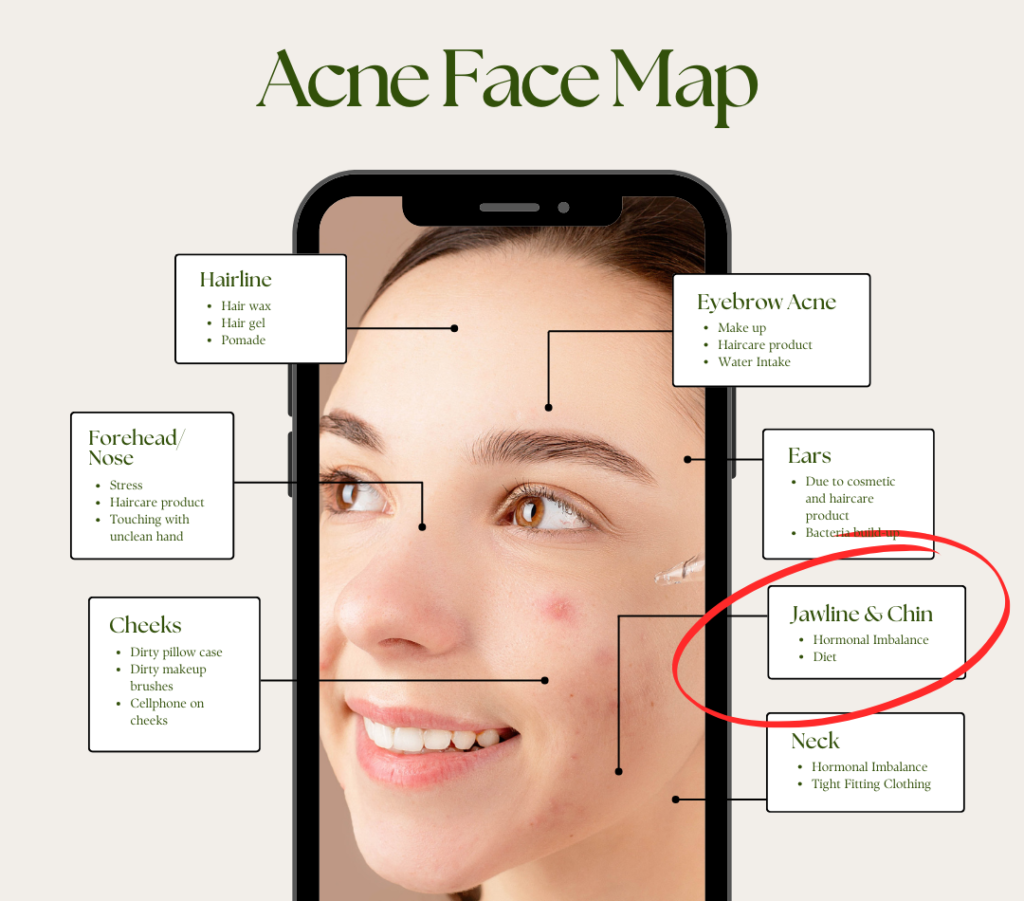
3. Diet and Its Link to Acne: Why Is My Face Breaking Out?
Dietary choices can have a surprising impact on skin health. Foods with high glycemic indexes, such as sugary snacks and refined carbs, have been shown to exacerbate acne. Dairy products, particularly skim milk, have also been linked to increased breakouts. If you’re pondering, “Why is my face breaking out despite eating healthy?” it may be worth examining specific food triggers like whey protein or even certain types of nuts.
What to Do:
- Reduce consumption of sugary, processed foods and dairy.
- Incorporate anti-inflammatory foods like leafy greens, nuts, and omega-3-rich salmon into your diet.
4. Stress and Breakouts
When you’re stressed, your body releases cortisol, which can worsen inflammation and acne. Stress can also lead to poor lifestyle habits, such as touching your face or neglecting your skincare routine.
What to Do:
- Practice stress management techniques, such as yoga, meditation, or journaling.
- Prioritize sleep, as it helps your body repair and reduces cortisol levels.
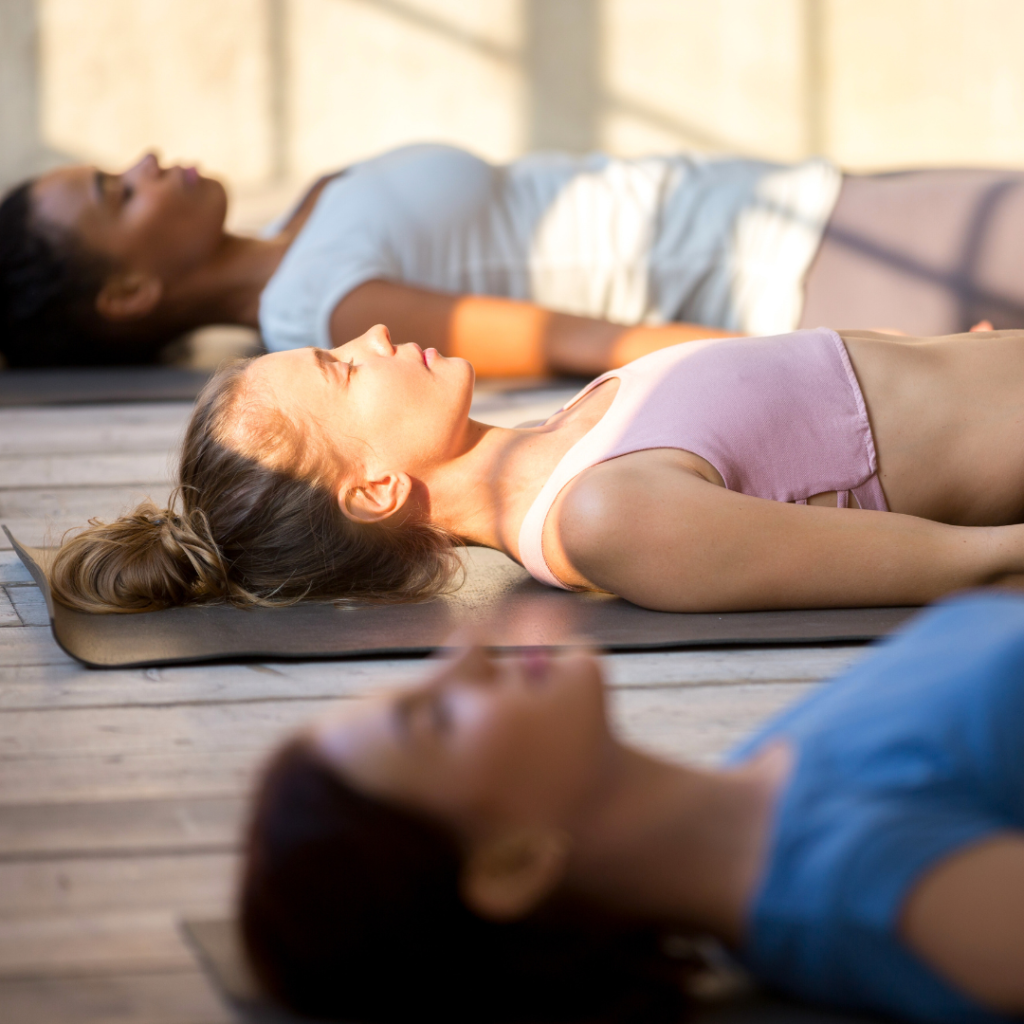
Less Stress = Better Skin
5. Environmental Factors
Pollution, humidity, and even your local climate can impact your skin. Particulate matter in the air can clog pores, while excessive sweating in humid conditions can mix with dirt and bacteria, triggering breakouts.
What to Do:
- Cleanse your skin thoroughly after spending time outdoors.
- Use an antioxidant-rich serum to protect against environmental damage.
6. Lack of Proper Skincare
Inconsistent or incorrect skincare practices can exacerbate acne. Over-washing can strip your skin of its natural oils, while under-washing can leave dirt and oil buildup.
What to Do:
- Cleanse your skin twice daily with a gentle cleanser.
- Avoid harsh scrubs that can cause irritation.
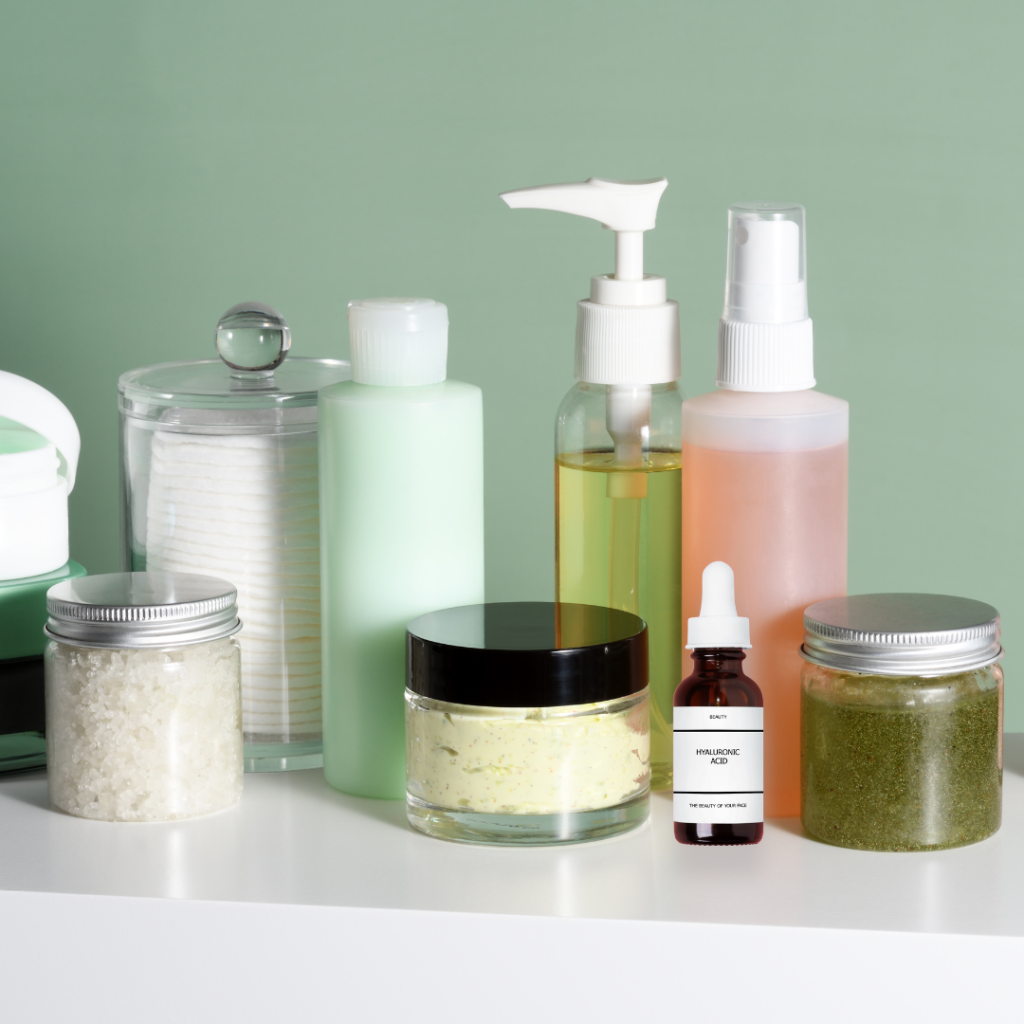
7. Touching Your Face
We touch our faces more often than we realize, transferring bacteria and oils that can clog pores. Picking at pimples or resting your hand on your chin can also introduce more irritation and inflammation.
What to Do:
- Be mindful of how often you touch your face.
- Keep your hands clean and your phone sanitized.
How to Prevent Breakouts
Here are some general tips to prevent acne and maintain clear skin:
- Cleanse twice daily: Use a gentle, pH-balanced cleanser.
- Exfoliate regularly: Incorporate chemical exfoliants like salicylic acid to unclog pores.
- Moisturize: Even oily skin needs hydration! Choose lightweight, non-comedogenic options.
- Protect your skin: Always wear sunscreen to prevent post-acne marks and scars.
- Stay consistent: Acne treatments take time, so stick to your routine for at least 6-8 weeks.
Frequently Asked Questions
1. Can stress really cause acne?
Yes, stress triggers cortisol, which can lead to increased oil production and inflammation, making breakouts worse.
2. Why is my face breaking out even though I’m using acne treatments?
Breakouts can persist despite treatments for several reasons. It might take weeks for treatments to show results, or you could be using products unsuited to your acne type. Lifestyle factors like stress or diet, and non-comedogenic products clogging pores, might also play a role. If acne persists, consult a dermatologist for personalized care.
3. How do I know if my acne is hormonal?
Hormonal acne typically appears along the jawline, chin, and lower cheeks, often worsening during your menstrual cycle.
4. Can I still wear makeup if I have acne?
Absolutely! Just choose non-comedogenic makeup and remove it thoroughly at the end of the day.
5. Are home remedies effective for acne?
While natural remedies like green tea or honey may have minor benefits, professional treatments are more effective for persistent acne.
6. Should I see a dermatologist?
If over-the-counter treatments aren’t working or your acne is severe, it’s time to consult a dermatologist for tailored advice.
Stay in the Know. Subscribe.
